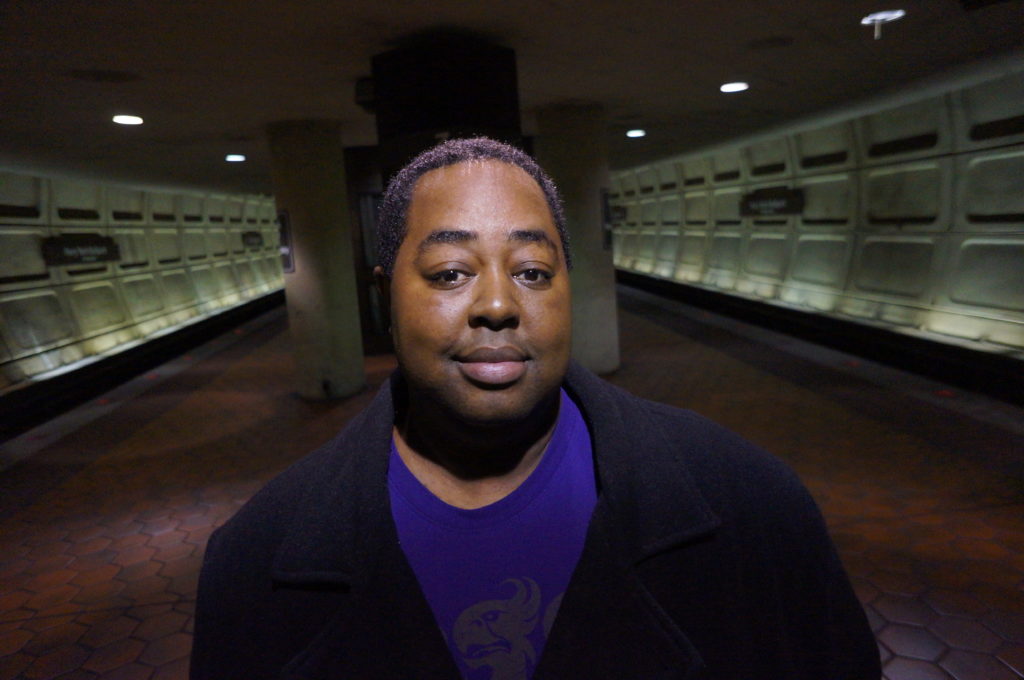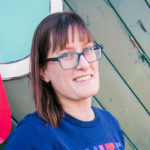
Alan Henry, the keynote speaker for #ASJA2022, inspires people not only through his hands-on editing work as service editor at WIRED, but also through his upcoming book, Seen, Heard, and Paid, which shares tools for employees to overcome workplace marginalization. Here, Henry speaks about the process of writing his book, the world of full-time editing, and how he balances the two.
Jennifer Billock: Tell me about your new book. What inspired it, and what was the process like to get your book deal?
Alan Henry: Seen, Heard, and Paid was originally titled “Productivity, Without Privilege,” which is the title of my newsletter. I think the goal was to help explain to people how they could be productive and find career success when they didn’t have the same privilege in the workplace that other people may have—whether that has to do with race, class, gender, religion, or something else. I’d been thinking of the idea for a while, but it really came to me while I was working at The New York Times, and I use some examples from my time there in the book. I wrote a piece for The Times about what to do when you’re discriminated against at work, and when that story blew up, it caught the eye of my editor, Matthew Benjamin at Penguin Random House, and William LoTurco, my agent, both of whom reached out to me to turn the article into a full book!
JB: How was the process to write it?
AH: I had a year to write the book, but I have to admit I did a lot of the writing in the last maybe five or so months. Before that, I spent a lot of time doing research and interviewing the social scientists, experts, and activists whose expertise were necessary. Of course, if I had it to do over again, I’d absolutely get started earlier, but luckily the editing process and everything were pretty straightforward to me, since I’m already an editor. But a lot of the book’s structure and format surprisingly came organically, since I wanted the book to offer actionable advice for my readers that they could use at work immediately. So even from the proposal stage, I was thinking about how to organize the book in a bite-size, easy-to-absorb series of tips and stories that would illustrate a problem and then present a solution.
JB: What’s a meaningful takeaway for ASJA members from your book?
AH: First of all, when I talk about “privilege,” remember that it can manifest in many ways—for those who have it and for those who don’t. So while you may not think you have it, you have to consider the circumstances of the people around you, and ask yourself whether you’re contributing to, even passively, a work environment that prevents them (and in some ways, prevents you) from bringing your whole, best self to work every day. Similarly, if you’re the one under someone else’s thumb, struggling to be seen at the office, have your ideas and expertise heard, and to be paid fairly for your work, there’s hope, and it doesn’t all immediately just lead to “quit your job, find another.” In every industry, especially in journalism and publishing, there are things we can do to support each other.
JB: In what ways is being an author different from being an editor?
AH: Oh geez, this is a great question. I’ve always been kind of a player-coach when it comes to my editing; I have a ton of stories in drafts I need to get back to at some point, but writing a whole book was different. Many MANY times I had to turn my own editor brain off and remind myself that it was more important to get the words and ideas on the page and not to fixate on what their final shape or form may be. It’s kind of cliche, but I caught myself editing my own writing several times, and while it certainly helped me turn in cleaner copy, I had to stop when I realized I was procrastinating by editing myself! At some point I had to get into the zone, and I realized I never would if I kept going back and trying to re-clarify a sentence or restructure a chapter.
JB: Did you have daily writing or editing goals that you strove to meet?
AH: Yes! I had a wonderful accountability buddy in Annalee Newitz, an incredible author, editor, and friend who was also kind enough to blurb my book! They checked in every day, usually around midnight or so my time (they live in SF, and I live in NYC) to make sure we were both making progress on our respective books. I think we agreed to about a thousand or so words a night, sometimes more, sometimes less, but 1,000 words was the goal unless we had something else going on (like transcribing interviews or doing other book stuff). All in all, the goal was to do something to touch the book project at least once per day, which was really important for me since I was writing the book while also working a full-time job!
JB: What’s your editing process and style?
AH: I’m a line editor, through and through—I actually don’t often just top edit, so you’ll know that I’ve paid attention to your work when I fix grammar and other things that some editors would leave to a copy editor. I just can’t help myself! I’m also a pretty collaborative editor, so as I read I try to think about how you would describe the situation or the story aloud, to another person sitting next to you. Most of my changes and tweaks to a writer’s story are intended to help their voice shine through as clearly and directly as possible, and drive right to the heart of what they want to tell a reader. I often find so many writers who are partially afraid of what their reader will take away from their stories that they hedge and do a lot of what my old boss, Adam Pash, former Lifehacker editor, calls “throat clearing,” where you spend a lot of time building up to a thing you actually want to say. It never helps, and it almost always takes away from your core point.
JB: Where do you find new ideas for stories?
AH: From writers! I’m very lucky to have cultivated a group of writers who send me ideas often, and I have a peer group of editors who are always interested in the off-the-beaten path stories and voices who don’t often get a chance to speak to current events. Those are the voices I’m seeking. One thing I loved about working at The Times was that I had the freedom to go to all of these wonderful journalists and writers who assumed their voice or their prose wasn’t “good enough” for NYT, and to sit them down and say, “No, your voice is exactly what NYT needs right now.” Disabusing people—especially people who don’t often get to share their stories or have their voices elevated—is everything to me. I don’t have to do much assigning when there are so many people out there with brilliant ideas! Aside from that, I get a lot of great ideas in the shower, I have to admit that.
JB: How is your typical day structured?
AH: I’m a bit of a night owl, as in I feel most productive in the afternoons and evenings, so I’m lucky enough to work at a place where we have folks in San Francisco and in the UK. I’m a bit of a New Yorker by location but I work west coast hours. So, I get up a little later than most, but I keep working way later than my UK and NYC colleagues, for better or worse. I get up, usually get some meetings out of the way, and then settle in to line edit stories and schedule them for publication. I get a pretty decent stream of pitches in my inbox every day, so I try not to let any one of them sit for too long, maybe a week max. Even if it’s a no, I try to explain why it’s a no and who might give it a yes. Then, when I was writing the book, I’d usually work on the book for a few hours every day. Now I’m trying to make a little more time for my own health and wellness—but that’s also tough when you have a book to promote! In my off time, you might catch me streaming on Twitch, either on my own channel, or on behalf of WIRED.
JB: What are you most excited for at the conference (aside from your fabulous keynote, of course)?
AH: I want to meet everyone, and hear more about your workplaces and how you’ve managed to thrive, or found ways to succeed, even in spite of others who may try to suppress you! I know a lot of journalists, but admittedly I don’t know nearly as many authors as I’d like, so I’d love to hear more from panelists and attendees about how they’ve refined the book-writing process and made it easier on themselves, not to mention their agents and editors!
JB: Anything else you’d like to say to ASJA members before the conference begins?
AH: Just a reminder that I think will be important this year: Take care of yourselves, and take care of each other. We actually do live in very interesting times, and I mean that with all of the good and the bad that’s going on in the world. It’s easy to feel hopeless and like there’s nothing we can do to help. And especially in our lines of work, where we tell those important stories, it’s easy to carry that weight in a way that our readers may not. Take the time to recover. Take time for yourself and your families and loved ones and friends. Rest and recharge in whatever way that looks for you, because it’s so, so important.

